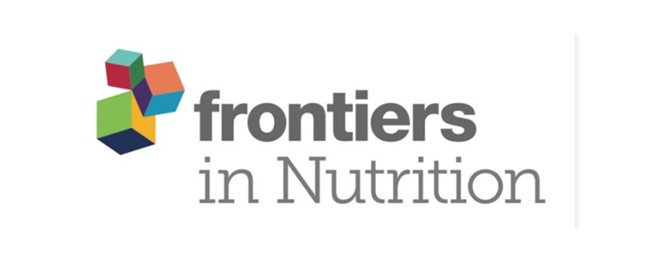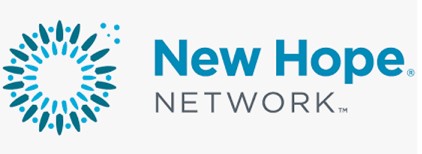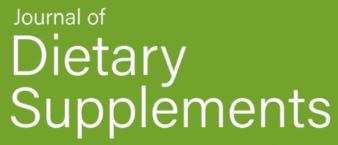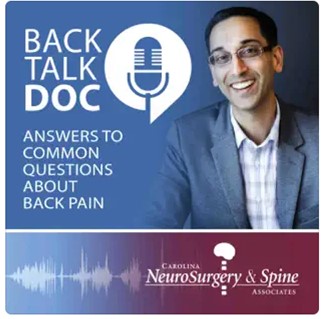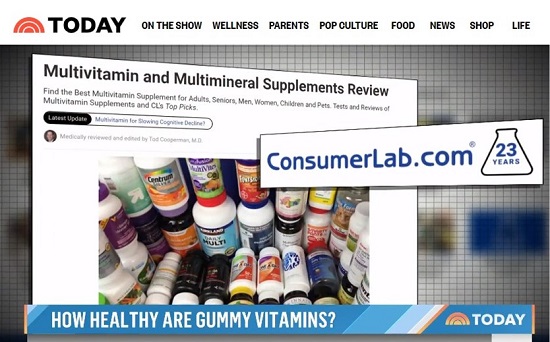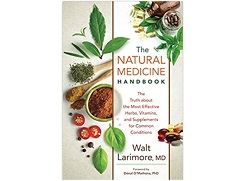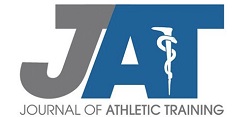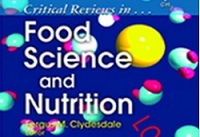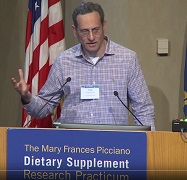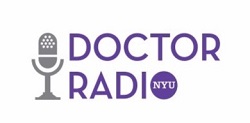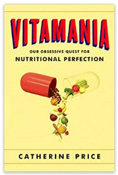"Some Dark Chocolates Contain Heavy Metals. Should You Be Concerned?" In The Washington Post (July 31, 2024), a study conducted over eight years by ConsumerLab, which tested cocoa products in the U.S., shows that 43% of these products surpassed California's regulatory limits for lead, and 35% did so for cadmium. While most products are not of concern, ConsumerLab continues to find outliers among popular products. You can see ConsumerLab’s product findings in the Dark Chocolates, Cocoa & Cacao Powders, Nibs, and Supplements Review, which includes CL's Top Picks. Other media covering this story include Today.com, The New York Times, NBC News, and CNN.
“Independent Testing Helps Consumers Choose Wisely on Health Products” (July 28, 2024) on the site BadCredit.com, highlights the critical role of ConsumerLab.com in the health supplement market. It details how ConsumerLab’s thorough Product Reviews guide consumers in selecting products that meet strict quality standards.
In "How to Choose Quality Vitamins and Supplements, According to a Dietitian" on VeryWellHealth.com (October 26, 2023), Regina C. Windsor, MPH, RDN, warns consumers that when it comes to dietary supplements, products "may not contain what the label says." Windsor recommends choosing a supplement that has been tested by a third-party such as ConsumerLab.com to help ensure it contains what it claims and has been checked for contaminants. She also advises consumers to learn about the clinical evidence, recommended dosages, and potential adverse effects and drug interactions for supplements before taking them – the type of information found in ConsumerLab’s Product Reviews.
ConsumerLab.com’s research findings regarding the freshness of oil in omega-3 supplements are the basis for an analysis published in the Journal of Dietary Supplements in September 2023 entitled "A Multi-Year Rancidity Analysis of 72 Marine and Microalgal Oil Omega-3 Supplements." ConsumerLab’s president, Tod Cooperman, M.D., and vice president for research, Mark Anderson, Ph.D., co-authored the paper with Leigh A. Frame, PhD and Jacob M. Hands of The George Washington University School of Medicine & Health Sciences. ConsumerLab’s most recent tests of these supplements are found in the Fish, Krill, and Algal Oil Supplements Review.
"What Can Turmeric Actually Do for Your Health?" in The New York Times (September 13, 2023) recommends checking ConsumerLab.com as a trusted, third-party testing organization before selecting a turmeric and curcumin supplement. The article discusses the potential health benefits of turmeric and curcumin supplements, including findings of a recent study investigating curcumin for reducing symptoms of dyspepsia, as well as safety concerns such as lead contamination, a problem ConsumerLab has discovered in its tests of turmeric and curcumin. You can see ConsumerLab’s product findings in the Turmeric and Curcumin Supplements and Spices Review, which includes CL's Top Picks among products.
"Fancy Multivitamins Cost $700 a Year. This $15 Option Is Just as Good." in The New York Time's Wirecutter (August 15, 2023), recommends ConsumerLab.com as one of the most widely recognized independent dietary supplement testing organizations, and the only top organization that exclusively tests products it buys directly from store shelves as a consumer would, rather than allowing manufacturers to submit samples for testing. The article cites ConsumerLab’s recent tests of multivitamins, which found that more than one-quarter of products contained more, or less, of one or more key ingredients than claimed on the label, and expensive brands were not an exception. “A vitamin’s price is definitely no indication of quality,” ConsumerLab.com's president, Tod Cooperman, M.D., cautions in the article. The best way to ensure the quality of a supplement, according to the article, is to check that the label bears a mark indicating it has been tested by an independent company, such as the ConsumerLab seal.
In "How a renowned fertility doctor profits from an unproven supplement" in The Washington Post (July 30, 2023), ConsumerLab.com's president, Tod Cooperman, M.D., warns that use of the term “pharmaceutical-grade” on DHEA (dehydroepiandrosterone) supplement labels is meaningless. "There are no set standards for it," Dr. Cooperman states. "When they say 'pharmaceutical-grade,' they're making up that term." In fact, use of this term is one of seven red flags ConsumerLab advises consumers to look out for when buying any supplement. See ConsumerLab's Review of DHEA Supplements for its test of products, discussion of the clinical evidence for and against DHEA supplementation for various uses, as well as potential side effects and interactions with DHEA.
In "Evaluating Supplement Quality with Dr. Tod Cooperman" on Carolina’s Neurosurgery & Spine Associates Back Talk Doc podcast (July 27, 2023), ConsumerLab.com's president, Tod Cooperman, M.D., and physician and board certified physiatrist Sanjiv Lakhia, D.O., discuss the importance of choosing products that have been tested by an independent third party, like ConsumerLab.com. Without such testing, Dr. Cooperman warns, “you’re at the mercy of the supplement company to do the right thing.” Dr. Cooperman explains which supplements are most likely to be contaminated with toxins such as lead, cadmium, and arsenic, why paying more for higher-cost supplements doesn’t guarantee safety or higher quality, and offers advice on shopping for supplements online. The episode explains why and how Dr. Cooperman established ConsumerLab.com to meet the need for independent supplement testing and provide consumers with reliable, in-depth information about natural products. It also mentions free resources on the site, such as CL’s RDA Calculator, which shows the recommended daily amounts of vitamins and minerals by age and gender.
"ConsumerLab.com is considered a premier authority in independent testing and information on health and nutrition products," according to Drs. Terry and Joe Graedon of The People's Pharmacy in "2 Health Opinion Leaders Trust This Supplement to Boost Their Brain Health" on Katiecouric.com (June 26, 2023). In the article, Terry Graedon cites ConsumerLab's tests of dark chocolates, cocoa powders, and cocoa supplements and notes "...there are very few other entities like ConsumerLab.com that can say they did the research, and here’s what they found."
In "Multiple factors can help, or harm, your sleep" (Wisconsin State Journal, June 17, 2023), Dr. Zorba Paster recommends checking ConsumerLab.com before choosing a melatonin supplement. Dr. Paster writes, "... go to my favorite website for this, consumerlab.com... The site provides the full rundown on melatonin and other supplements you may want to take. It costs money to sign up for access to the site, but if you’re like me, thrifty, you’ll recoup that cost by buying the best supplement for the best price." ConsumerLab tests each product in its Melatonin Supplements Review to confirm that it contains the amount of melatonin listed on the label and selects its Top Picks for melatonin based on quality, dosage and value.
ConsumerLab's president, Tod Cooperman, M.D. was once again honored to be among the experts speaking at the 2023 Office of Dietary Supplements Research Practicum held at the National Institutes of Health. The talks are now available online on YouTube. Dr. Cooperman participated in the "Dietary Supplement Quality" panel on May 24th - Day 3 (his talk starts at 2:52:10, and his discussion of recent findings by ConsumerLab starts at 3:03:57). The Practicum is an annual three-day educational opportunity providing fundamental knowledge of dietary supplements to faculty, students, and practitioners. It emphasizes the importance of scientific investigations to evaluate the efficacy, safety, and value of these products for health promotion and disease prevention as well as how to carry out this type of research.
In "What do apple cider vinegar gummies actually do? Goli's $438 million business may or may not have the answer" on FastCompany.com (April 24, 2023), ConsumerLab.com's president, Tod Cooperman, M.D., explains that, based on ConsumerLab’s past tests of Goli Apple Cider Vinegar gummies, you'd need to consume about 40 of these gummies at a time – although he doesn't advise doing so -- to get enough acetic acid to have a potential blood sugar lowering effect. ConsumerLab’s Apple Cider Vinegar Review includes test results and CL’s Top Picks among popular bottled apple cider vinegar and well as apple cider vinegar supplements.
In "Medication or supplements you should NEVER mix - from St John's wort and antidepressants to iron and green tea" in The Mirror (March 26, 2023), ConsumerLab.com's president, Tod Cooperman, M.D., warns about some of the most common and potentially dangerous supplement and drug interactions, including fish oil and prescription blood-thinners. He also explains that it's best to avoid taking certain supplements at the same time, such as taking melatonin along with other herbs with sedative effects, or taking large doses of calcium and magnesium together, noting "Taking large amounts of minerals with other minerals will reduce absorption."
"Are produce powders beneficial?" in The Brunswick News (March 17, 2023) cites ConsumerLab's Review of Fruits, Veggies, & Greens Supplements, which includes tests of Balance of Nature and other powdered “fruits & veggies” supplements, as well as products containing spirulina, chlorella, and other greens. As noted in the Review, these products are not substitutes for getting the recommended daily intakes of fruits and vegetables, as they provide, at best, only one-fifth of the adult daily requirement. "You can get more fruit (and fiber) from a single apple than from most fruit supplements, and at much lower cost," ConsumerLab.com's president, Tod Cooperman, M.D., notes in the article.
In the article "Iron Deficiency in Psychiatric Patients" in Current Psychiatry (March 2023), Stephanie Weinberg Levin, M.D. and Theresa B. Gattari, M.D. recommend checking ConsumerLab.com when choosing an iron supplement: "Advise patients to use iron products that have been tested by an independent company, such as ConsumerLab.com. Such companies evaluate products to see if they contain the amount of iron listed on the product’s label; for contamination with lead, cadmium, or arsenic; and for the product’s ability to break apart for absorption.” ConsumerLab purchases the products it tests directly from retail, as a customer would, unlike some third-party testing organizations that receive the products they test from supplement manufacturers. ConsumerLab's Iron Supplements Review includes test results and CL's Top Picks among iron supplements, including high-dose iron suitable for treating deficiency, as well as chewable, liquid, and slow-release products.
In "Do your homework before taking herbal supplements" Gonzales Weekly Citizen (February 21, 2023) dietician Leanne McCrate, RDN, LD, recommends ConsumerLab.com as a resource for independent tests of dietary supplements to ensure they contain what they claim and have been checked for contamination. McCrate also reminds consumers that "just because something is natural does not mean it is safe."
In the article "Do your vitamin and mineral supplements actually do anything? Here's what experts say." on Yahoo News (January 3, 2023), Dr. Marilyn Tan, a clinical associate professor of medicine at Stanford University, recommends that consumers look for ConsumerLab's seal on supplement labels to ensure the products they choose have been quality-tested and verified. (ConsumerLab publishes the results of these tests in each of its Product Reviews.) Dr. Tan also advises consumers to be wary of products that make "miraculous claims," which is one of the six red flags ConsumerLab warns its readers to watch out for when buying vitamins and supplements.
In "How Healthy Are Gummy Vitamins?" on NBC News TODAY (October 25, 2022), ConsumerLab.com's president, Tod Cooperman, M.D., warned that the company's tests have shown that gummy vitamins are more likely to have quality issues than other types of vitamins, and, concerningly, may contain far more ingredient than listed on the label, which can increase the risk of adverse effects. ConsumerLab testing revealed that two gummy multivitamins contained twice their listed amounts of folic acid, putting them close to the upper tolerable limit for daily exposure. It also found that a popular children’s melatonin gummy contained twice as much melatonin as listed on the label.
In "Gummy Vitamins Are Surging in Popularity. Are They Healthy or Just Candy?" in the Wall Street Journal (October 11, 2022), ConsumerLab.com's president, Tod Cooperman, M.D., warns that "gummy vitamins are more likely to have quality issues than tablets and caplets." The article cites ConsumerLab's finding that a popular children’s melatonin gummy contained twice as much melatonin as listed on the label. ConsumerLab has also discovered gummy multivitamins that contained twice their listed amounts of folic acid, putting them close to the upper tolerable limit for daily exposure.
"Dietary Supplements – The Wild West of Good, Bad, and a Whole Lotta Ugly" in Medical Clinics of North America (September 2022) by David S. Seres, MD, Dónal O'Mathúna, BSc(Pharm), and Walter L. Larimore, MD, recommends ConsumerLab.com as one of the best sources for healthcare providers and consumers for "objective, evidence-based, and up-to-date information on natural medicines." The article takes a critical look at the evidence regarding supplement safety and efficacy, consumer beliefs, and current regulation.
In the article "Don't Rely on Amazon for Legitimate Supplements, Study Finds" on VeryWell Health (August 24, 2022), Sarah Anzlovar, MS, RDN, LDN, a registered dietitian, suggests that consumers look for supplements that have been certified by a third-party, adding that "ConsumerLab also does significant testing." The article reports on a study that found that more than 50% of 30 top-listed immune support supplements purchased on Amazon.com in May of 2021 listed ingredients that could not be found in them with testing (see ConsumerLab's coverage of that study on August 11, 222).
The People's Pharmacy column "Use caution if choosing red yeast rice for cholesterol" in the Winston-Salem Journal (July 21, 2022) cites ConsumerLab.com's tests of red yeast rice supplements, which found that most did not contain enough of the cholesterol-lowering compound lovastatin to be effective, including one product that contained none, and many were contaminated with citrinin, a potential kidney toxin.
ConsumerLab's president, Tod Cooperman, M.D. was honored to be among the experts speaking at the 2022 Office of Dietary Supplements Research Practicum held at the National Institutes of Health. The talks are now available online through the ODS website. Dr. Cooperman participated in the "Meet the Watchdogs" panel on May 25th - Day 3 (his talk starts at 2:33:05). The Practicum is an annual three-day educational opportunity providing fundamental knowledge of dietary supplements to faculty, students, and practitioners. It emphasizes the importance of scientific investigations to evaluate the efficacy, safety, and value of these products for health promotion and disease prevention as well as how to carry out this type of research.
"How 1.5 Million Aloe Vera Leaves Are Harvested A Week" from Business Insider (October 10, 2021) cites ConsumerLab's findings that half of the aloe liquids, gels and supplements it tested in 2015 contained little or no aloe. ConsumerLab's president, Tod Cooperman, M.D., also gives tips in the video on what to look for on aloe labels, and what the ingredient list may or may not tell you about the actual content of aloe products.
"Is Turmeric Good Medicine?" in Consumer Reports (September 12, 2021) takes a critical look at turmeric supplements and suggests that consumers check that products have been tested by a third party such as ConsumerLab.com. See our list of Approved turmeric and curcumin supplements, including our Top Picks, in our Turmeric and Curcumin Supplements Review. Our review includes additional details about what turmeric and curcumin have, and have not, been shown to do in clinical studies.
"Is Aloe a Sham?" in The New York Times (August 20, 2021) warns there's no guarantee that aloe products on the market contain what they promise, and cites ConsumerLab's tests of popular aloe liquids, gels and supplements that found half of the products tested contained little to no aloe.
In "6 of the Worst Things to Buy at Aldi" from MoneyTalksNews (June 17, 2021), #2 on the list is "Avocado Oil" based on ConsumerLab's recent finding that the fatty acid profile of Aldi’s avocado oil did not fully match that of avocado oil, suggesting adulteration with another oil. For our results and quality ratings of this and other popular avocado oils, as well as our Top Pick among them, see our Avocado Oil Review.
In "What Are Supplements" from the University of California – San Diego (September 4, 2020), Recreation Nutritionist Erin Kukura explains what consumers need to keep in mind before buying and using a supplement and suggests ConsumerLab.com for checking the purity of supplements.







